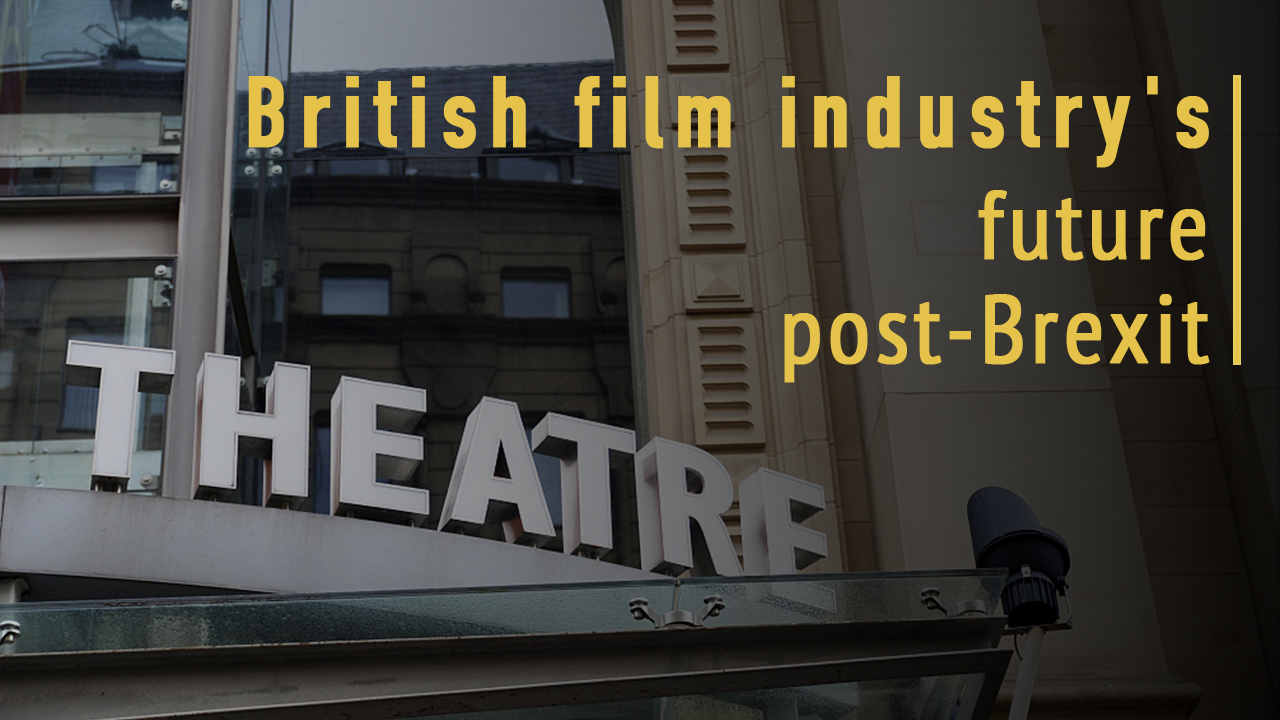
Movie/TV
07:38, 20-Mar-2019
British film industry's post-Brexit future
By Ye Qing

In the run-up to the Brexit, although Britain has been vacillating between "delay" and "consent", we have to admit that Britain's departure involves almost every aspect of social life, including film industry.
Despite the support of Hollywood, Britain has an independent film industry. Just because British filmmakers go to work in Hollywood does not mean that British films are no less valuable.
Therefore, to some extent and for a certain period, the support of Hollywood can cover up the impact of Brexit on the film industry, but in the long run, the effects of Brexit on British film industry would be undeniable.
If Brexit is to happen, then the release of British films across Europe will have to be more cumbersome than it is now. The way the box office sharing, tax calculation will be more complicated.
What insiders say
Zygi Kamasa, Lionsgate Films' UK and Europe CEO said that they don't know at the moment how big an impact Brexit will have on films. Whether British films invested in Europe can still be made or not is a question.

The 62nd BFI London Film Festival in London, Britain, October 19, 2018. /VCG Photo
The 62nd BFI London Film Festival in London, Britain, October 19, 2018. /VCG Photo
According to Olian News, a related assessment report published by the British Film Institute (BFI) shows that leaving the European Union (EU) will lead to the brain drain of British Film and television industry, and even the loss of EU's subsidies, also, the film and television industry needs to develop to markets outside the EU.
The report also pointed out that creative industries in the UK would incur additional costs after Brexit since film and television workers from EU member states need to obtain visas to work in the UK, it will increase the cost of talent flow in the film industry.
William Sargent, CEO of Framestore, a British visual effects company, pointed out that 30 percent of the 1,200 visual effects talents in London now come from EU member states, and the personnel exchange problem caused by Brexit will affect the company's cooperation with EU talents.

Richard E. Grant attends the UK Premiere of "Can You Ever Forgive Me?" and Headline gala during the 62nd BFI London Film Festival on October 19, 2018, in London, England. /VCG Photo
Richard E. Grant attends the UK Premiere of "Can You Ever Forgive Me?" and Headline gala during the 62nd BFI London Film Festival on October 19, 2018, in London, England. /VCG Photo
Eric Fellner, vice president of Working Title Films, once said, there were no restrictions on the movement of equipment when filming in Europe, and there could be more restrictions after Brexit.
Amanda Nevill, CEO of the BFI, said Brexit would raise production costs for the film and television industry, creating new barriers to business, movement of people and equipment and leading to an exodus of British film and television companies. The European broadcasting center of the Discovery Channel, a popular documentary program, is planning to move out of London.

The poster of "Paddington" /VCG Photo
The poster of "Paddington" /VCG Photo
In the past few years, the EU's film creative agency had facilitated the large-scale release of nearly 120 British films in Europe, among which "Paddington", "Suffragette" and "I, Daniel Blake" have all achieved remarkable results at the box office.
Whether Britain will be replaced as Europe's film leader after Brexit is unclear, however, judging from the past performance of British films, it will be quite difficult for the European single film market, to shake up the dominance of British films in a short run.
(Head image made by Yin Yating.)

SITEMAP
Copyright © 2018 CGTN. Beijing ICP prepared NO.16065310-3
Copyright © 2018 CGTN. Beijing ICP prepared NO.16065310-3